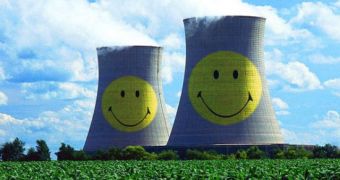Just yesterday, four top climate scientists sent an open letter to climate campaigners and politicians, and argued that, according to evidence at hand, increasing the world's dependence on nuclear power could help put a leash on ongoing phenomena such as climate change and global warming.
In their letter, the climate scientists argue that, although renewables are by far the better option as far as limiting environmental pollution is concerned, this does not change the fact that assuming that wind and solar power can successfully meet the world's energy needs is, for lack of a better word, a utopia.
More precisely, the researchers doubt that, heavy investments aside, wind and solar power, as well as other green energy sources, will develop fast enough to actually make a difference in terms of curbing carbon pollution and fighting back global warming.
“They’re cheating themselves if they keep believing this fiction,” says former NASA researcher James Hansen about the people who promote the use of renewables alone, as cited by Daily Mail.
Together with Ken Caldeira of the Carnegie Institution, Kerry Emanuel with the Massachusetts Institute of Technology and Tom Wigley with the University of Adelaide, James Hansen recommends that both ordinary folks and politicians start looking into the possibility of replacing fossil fuels not with renewables, but with nuclear power.
“With the planet warming and carbon dioxide emissions rising faster than ever, we cannot afford to turn away from any technology,” the specialists reportedly write in their letter.
“The time has come for those who take the threat of global warming seriously to embrace the development and deployment of safer nuclear power systems,” they go on to argue.
The researchers also stress that, while it is true that harvesting nuclear power does pose some risks, the fact remains that doing nothing to limit climate change and/or waiting for renewables to help solve this problem is far worse.

 14 DAY TRIAL //
14 DAY TRIAL //